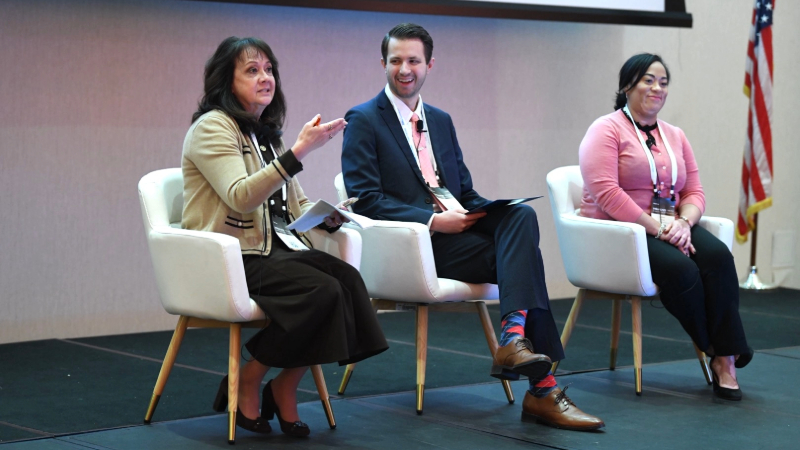
Tech policy experts on Capitol Hill said Thursday that the recent AT&T outage across the nation showed the importance of the resiliency of America’s critical infrastructure.
Slate Herman, counsel for the House Energy and Commerce Communications and Technology Subcommittee, said during the Visualyze Zero Trust Security Summit hosted by MeriTalk and Gigamon on Feb. 29 in Washington, D.C., that lawmakers are using the incident as an opportunity to test the nation’s critical infrastructure resilience and the corresponding response.
“I think one thing we saw last week with the AT&T outage is how public safety responded,” Herman said. “We’re still in talks with AT&T and trying to figure out what happened and so looking forward to see what we can learn from this instance.”
“Luckily, I don’t believe that this was a cyberattack and so, in the future if that were to occur, I think this was a great opportunity for us to see what sort of resilience exists,” Herman said.
On Feb. 22, tens of thousands of Americans had trouble making phone calls, sending texts, reaching emergency services, or even accessing the internet because of a nearly 12-hour AT&T network outage.
“Resiliency is a huge issue for Ranking Member Pallone,” said Johanna Thomas, minority counsel for the House Energy and Commerce Communications and Technology Subcommittee. “Making sure our networks are resilient and responsive and making sure that consumers can access 911 environment emergency alerts at all times is very important for him,” she added.
Thomas noted that in early February, Feds warned that a Chinese-based hacking group had compromised the IT environments of multiple U.S. critical infrastructure organizations – with the end goal of a future cyberattack – leaving “a lot of people on edge” during the AT&T outage.
“It does show the importance of 911 emergency alerts and making sure that consumers and the government are connected in one way, shape, or form at all times,” she added.
Thomas touted that the committee passed this Congress the Advanced, Local Emergency Response Telecommunications (ALERT) Parity Act, which allows satellite companies to come in and provide broadband connectivity in areas that have been affected by natural disasters.
“Before, if wireless carriers, and other folks, if their networks are down, they’re just not in those areas,” Thomas explained. “I think one thing that we try to do on the Energy and Commerce Committee, and especially our subcommittee, is be creative.”
“With all this type of technology, how it can all blend together so that satellites can work with your wireless operators who work with your wireline broadband and cable fiber,” she continued, “How can we just have one seamless network and how can we make that happen?”
Thomas emphasized during the summit that cybersecurity is a very bipartisan topic for the Energy and Commerce Committee, and the lawmakers are dedicated to protecting America’s critical infrastructure.
“From a big picture perspective, I know there are lots of committees on the Hill that talk about cybersecurity and are thinking a lot about cybersecurity,” she said. “And I want you all to remember that Energy and Commerce Committee writ large is thinking about cyber, and we really want to make sure – I think, on a bipartisan basis, on both sides of the aisle – really make sure that the critical infrastructure industries that we oversee on our committee – whether it be in health, energy, environment, telecommunications – we want to make sure that those are all safe and secure and that we’re keeping bad actors out of our critical infrastructure, including foreign adversaries.”
